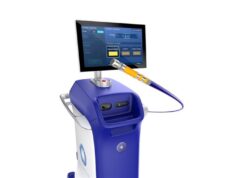
Boehringer Ingelheim has announced the next step in the clinical development of idarucizumab, the investigational antidote for rapid reversal of dabigatran-induced anticoagulation. Previous results from a study in healthy volunteers show antidote to be well-tolerated with immediate, complete and sustained effect.
Idarucizumab has already demonstrated immediate, complete and sustained reversal of the anticoagulant effect of dabigatran in healthy volunteers. Now the potential antidote will be investigated in the clinical setting in patients taking dabigatran (Pradaxa). Boehringer Ingelheim states that this is the first time that an antidote under development for a novel oral anticoagulant is investigated in a study in patients.
A press release states that the pivotal patient study will provide knowledge on the potential of the specific antidote to support the treatment of patients taking dabigatran who may benefit from rapid reversal of dabigatran-induced anticoagulation.
Emergency rooms in more than 35 countries worldwide will participate in this study. Physicians will be equipped with the investigational antidote idarucizumab as a ‘ready to use’ solution for infusion. The first study sites in Europe have been initiated, and more sites and countries will follow during the course of the year.
Prior clinical research of the antidote in a healthy volunteer study with 145 participants has already demonstrated the potential of the antidote for immediate, complete and sustained reversal of the anticoagulant effect of dabigatran. In the placebo-controlled study, the antidote was well tolerated and did not cause any clinically relevant side effects. Importantly, no pro-thrombotic effect was observed after the administration of the antidote and also no return of anticoagulant activity of dabigatran over time at adequate doses. These two aspects are especially valuable in clinical situations where rapid reversal of dabigatran-induced anticoagulation may be beneficial for patients taking Pradaxa.
“For those patients who do need reversal, the antidote would provide an additional option beyond the already existing measures in a physician’s toolbox. The antidote would remove the anticoagulant effect of dabigatran from the clinical scenario so that physicians can focus on the other aspects of patient management.” says Charles Pollack, professor of Emergency Medicine at the University of Pennsylvania School of Medicine and chairman of Emergency Medicine at Pennsylvania Hospital in Philadelphia, USA, and lead investigator of the patient study.
The antidote is still under investigation, has not been approved for clinical use, and further safety and efficacy testing will be required prior to market launch.









